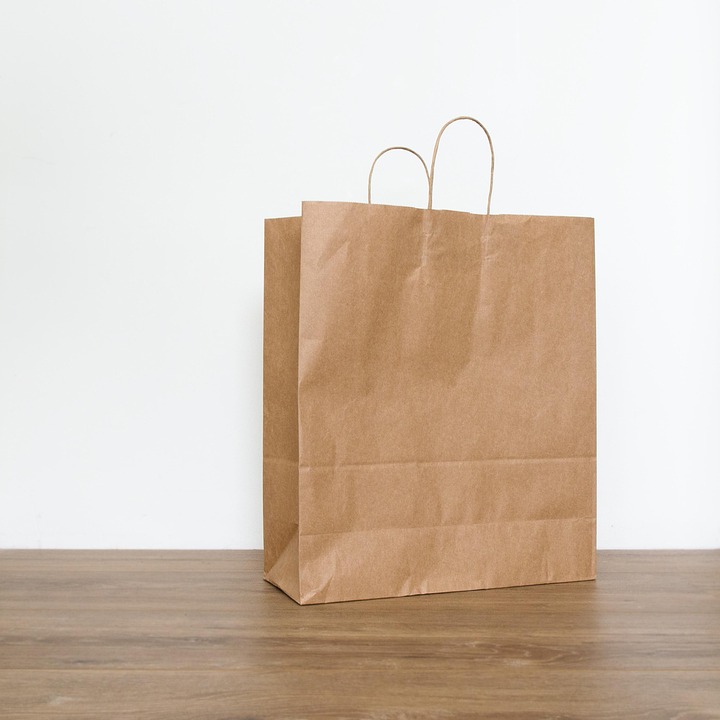-
首頁 東莞厚街工業園

紙袋的興起:塑料的可持續替代品
[ad_1]
In recent years, the world has witnessed a significant shift towards a more sustainable lifestyle, with consumers and businesses alike acknowledging the detrimental impact of single-use plastics on the environment. Amidst this movement, paper bags have emerged as a promising alternative, offering a biodegradable and compostable solution for packaging and carry-all needs.
The Rise of Paper Bags
Globally, the production and disposal of single-use plastic bags have contributed to an estimated 100 billion plastic bags being used annually, with the majority ending up in landfills, oceans, and incinerators (1). The consequences of this staggering statistic are well-documented, from marine life entanglement and ingestion of plastic debris to the decomposition of microplastics in the human body. Paper bags, on the other hand, are made from renewable resources, such as wood pulp, cotton, and sugarcane, rendering them a more environmentally friendly option.
Advantages of Paper Bags
Several benefits make paper bags an attractive choice for consumers and businesses:
- Biodegradable: Paper bags are readily compostable, reducing the staggering amounts of plastic waste in landfills and oceans.
- Compostable: Many paper bags are certified by organizations such as the Biodegradable Products Institute (BPI) or the Compostable Products Institute (CPI), ensuring they meet strict biodegradability standards.
- Portable: Paper bags are lightweight, easy to transport, and often have a customizable size to fit various goods.
- Simple disposal: Unlike plastic bags, which often require special equipment for recycling, paper bags can be easily disposed of in regular trash or compost bins.
Challenges and Limitations
Despite the evident benefits, paper bags are not without their challenges and limitations:
- Resource Intensity: The production of paper bags requires significant resources, including water, energy, and chemicals, which can have environmental impacts.
- Carbon Footprint: The carbon footprint of paper bag production is generally higher than that of single-use plastics, although efforts are being made to reduce carbon emissions.
- Cost: Paper bags are often more expensive than plastic bags, making them less appealing to consumers and businesses with limited budgets.
The Rise of Sustainable Alternatives
To mitigate the drawbacks of paper bags, innovators have developed sustainable alternatives, such as:
- Bioplastic bags made from plant-based materials like potato starch, cornstarch, or sugarcane, offering a scalable and renewable solution.
- Recycled paper bags, which utilize post-consumer waste, reducing the need for virgin paper and minimizing waste.
- Reusable bags, such as cotton or canvas totes, designed for repeat use, reducing the need for single-use packaging.
Conclusion
As the world grapples with the plastic problem, paper bags are gaining momentum as a sustainable alternative. While they are not perfect, their biodegradable and compostable nature, versatility, and widespread availability make them a viable option. As the market continues to evolve, innovators will likely develop more sustainable solutions, making it essential for consumers and businesses to consider the environmental implications of their packaging choices.
常見問題
Q:プラスチック袋よりも紙袋を使用する利点は何ですか?
A: Paper bags are biodegradable, compostable, and offer a more sustainable solution for packaging and carry-all needs, reducing the environmental impact of single-use plastics.
Q: Are paper bags more expensive than plastic bags?
A: Yes, paper bags are often more expensive than plastic bags, but this difference is decreasing as sustainable alternatives emerge.
Q: Can I compost my paper bags?
A: Many paper bags are certified biodegradable and compostable, ensuring they can be easily disposed of in regular trash or compost bins.
Q: What are some sustainable alternatives to paper bags?
A: Bioplastic bags, recycled paper bags, and reusable bags made from materials like cotton or canvas are some of the sustainable options available.
Q: How can I reduce my environmental impact by using paper bags?
A: By choosing biodegradable and compostable paper bags, opting for reusable bags, and selecting products with minimal packaging, you can contribute to reducing waste and promoting sustainability.
Q: Can paper bags be molded or shaped to fit specific products or designs?
A: Yes, paper bags can be customized to fit various products, making them an attractive option for businesses seeking branded or specific packaging solutions.
(diff) Raymond Chen January 19, 2023
[ad_2]





